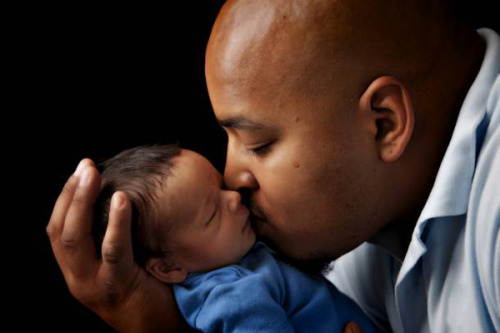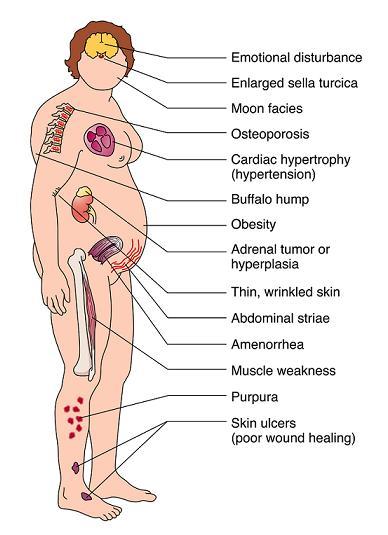
Coincidentally read this while going through psych section. Good review for postpartum mood disturbances. I think this is pretty important awareness to have especially since the symptoms of postpartum depression/anxiety can be easily mistaken with “normal” stress associated with caring for a newborn (“I just feel ‘blah’.”). And especially since suicide & homicide rates are scarily high for postpartum couples…except that’s more highly associated with postpartum psychosis, which is not discussed in the interview, but still relevant.
ucsdhealthsciences:
Do New Dads Get Blue, Too? Three questions for our expert
Much is known about the sympathy symptoms men experience when their partners are pregnant –everything from weight gain to nausea. It’s called
Couvade syndrome and has been used as fodder for plots in many a romantic comedy or television sitcom. But what about after the baby is born?
Both the “baby blues” and
postpartum depression and anxiety (PPD/A) are characterized with irritability, restlessness and anxiety in women who’ve recently given birth. PPD/A is a more serious condition with lasting symptoms that can range from hopelessness to confusion to fear of harming the newborn.
If dads-to-be can experience nausea, fatigue and weight gain concurrent with moms-to-be, can new dads also experience PPD/A?
We’ve asked Katie Hirst, MD, director of UC San Diego Health System’s Maternal Mental Health Clinic, three questions about the baby blues, postpartum depression and new dads.
Question: First things first, what should women be aware of in order to discern between the “baby blues” and PPD/A?
Answer: “Baby blues” is related to the combination of a few major events that occur around childbirth: 1) you have a baby! (a pretty big emotional impact); 2) there is a massive drop in hormones immediately after the placenta is delivered, which can make chemicals in the brain go haywire for a little while; and 3) sleep deprivation from the third trimester and labor/delivery. The majority of women find that, within a few days of delivery, these three factors lead to tearfulness (often for no clear reason), irritability, mild insomnia and/or anxiety.
The important differences between “baby blues” and PPD/A are severity and duration: “baby blues” does not impact your ability to take care of your newborn or yourself, and does not last for more than 2 weeks postpartum. In contrast, PPD/A typically starts anytime in the first 6 weeks postpartum and (if untreated) can last for months or even a year. Women with PPD/A may be too depressed or anxious to take care of their newborn like they would normally be able to do, and almost always feel very overwhelmed and/or irritable.
Q: A 2010 study in the Journal of the American Medical Association (JAMA) reported that up to 10 percent of new dads may experience PPD/A. Are the symptoms in men similar to those in women or are there specific factors that new parents should be on the look-out for? Does it differ from feeling overwhelmed by new responsibilities of fatherhood?
A: Just as with women, men with PPD/A report feeling overwhelmed and are typically irritable or “snappy” as a result. While most people expect a depressed mother or father to feel sad, both men and women with PPD/A often deny feeling sad but do report less enjoyment in their everyday life. I commonly hear statements such as, “I just feel ‘blah,’” “nothing excites me anymore,” and “I’m just going through the motions.”
While most new fathers feel tired and overwhelmed, and couples can certainly get a bit snappy with each other from the stress of caring for a newborn, a father with PPD/A feels all of this much stronger than expected. Guilt over not being the “perfect dad” in his mind, feeling trapped and losing the ability to concentrate are also common. The most notable (and frustrating) symptom is often difficulty sleeping—either trouble falling asleep or waking up even though the baby is sleeping. New dads are tired, for sure, but this is even worse with insomnia.
Q: Men are notorious for not seeking medical care and especially mental health care. If PPD/A is suspected in a new dad, what can friends or family do to help?
A: Talking with a new dad about how he is feeling, and letting him know that fathers are almost as likely as mothers to have PPD/A are the most important first steps. Just as women think “it won’t happen to me,” men often think “it can’t happen to me because I’m a man.” Awareness is the first step, then acceptance—letting him know that it’s a common occurrence and that getting better will help him be the best father possible. Giving him the articles and website listed below may show him that he is not the only man to go through this.






